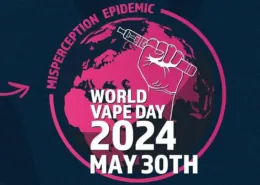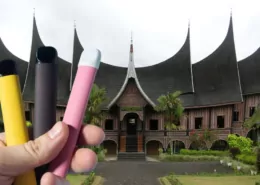Poland Moves to Regulate Nicotine Pouches, Ban Minor Sales
New Law Aims to Close 5-Year Regulatory Gap for Popular Products
Poland is finally set to regulate the rapidly growing market for nicotine pouches, addressing a five-year regulatory vacuum that experts warn poses a public health risk, particularly to young people. A Sejm (parliamentary) Health Committee meeting scheduled for May 7th will discuss amendments to the Act on Health Protection against the Consequences of Using Tobacco and Tobacco Products, specifically incorporating rules for these tobacco-free oral nicotine products.
Experts from the Law for Development Forum think tank have highlighted the urgent need for regulation. Nicotine pouches, which entered the Polish market around 2020, have largely escaped existing tobacco or e-cigarette laws due to their unique composition (no tobacco) and usage method. Dr. Konrad Hennig, Program Director at the Forum, pointed out this lack of oversight means there are currently no legal age restrictions, nicotine content limits, packaging warning requirements, or restrictions on sales channels – allowing pouches to be easily sold online, in vending machines, and in stores without age verification.
“This is an unusual and unexpected situation,” Dr. Hennig stated, emphasizing the risks of unregulated access for minors.
Key Provisions of the Proposed Regulations:
The draft amendment, which has already completed a three-month technical notification process with the European Commission without objections, aims to rectify this by introducing several key controls:
- Ban on Sales to Minors: Prohibiting the sale of nicotine pouches to anyone under 18 years old.
- Sales Channel Restrictions: Banning sales via the internet and vending machines.
- Packaging Requirements: Mandating health warnings on packaging.
- Nicotine Content Limit: Introducing a cap on nicotine content, likely set at 20 mg per gram (mg/g). Dr. Hennig noted that currently, some pouches can contain extremely high levels (up to 50mg per pouch), posing significant health risks to unaware users.
- Ingredient Controls: Prohibiting carcinogenic substances in the pouches.
Dr. Hennig described the draft law as “good” and capable of solving the problems accumulated over five years of non-regulation. He urged swift adoption by parliament, cautioning against potential last-minute amendments that could further delay implementation, arguing there is no clear interest for producers or politicians in postponing these necessary rules.
Market Growth and Existing Taxation
Despite the lack of health regulations, nicotine pouches were brought under the excise tax system in October 2024, with projected revenues around 170 million PLN over three years. The market is substantial, with current annual sales estimated at 200 million units and projected to grow rapidly to 300 million in 2026 and 450 million in 2027. This highlights the paradox Dr. Hennig noted: taxing a product while failing to regulate its content or restrict youth access contradicts comprehensive anti-nicotine public health goals.
The upcoming legislation aims to finally align health regulations with the product’s growing market presence and existing tax framework.
- News source: Rynek saszetek nikotynowych w Polsce będzie uregulowany. Osoby nieletnie nie będą mogły ich kupić
- Austria Plans to Ban Disposable E-Cigarettes - August 5, 2025
- Vaping vs. THC Drinks: Which Cannabis Option Is Right for You? - August 4, 2025
- Colombia’s New Vape Law: A Reality Check on Enforcement - August 4, 2025








